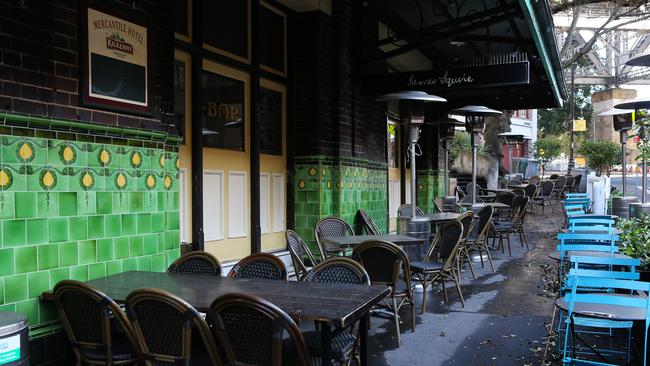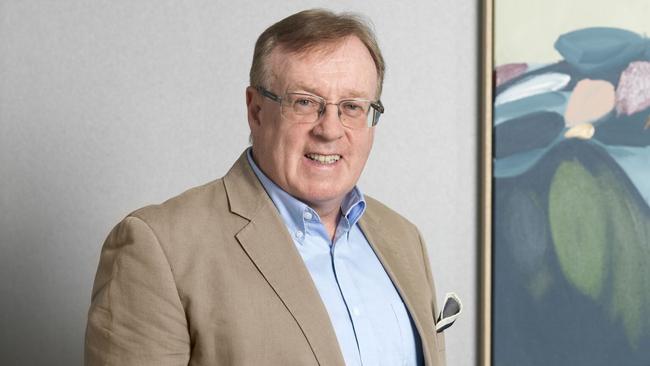Smaller firms fighting to get credit during lockdowns as many consider ‘quitting altogether’, Judo Bank says
Smaller businesses are confronting a daunting challenge to secure credit during renewed Covid-19 lockdowns, as many consider ‘quitting altogether’, a Judo Bank survey has found.

Smaller businesses are confronting the biggest challenges to secure credit and stay afloat during renewed Covid-19 lockdowns, as a large proportion consider “quitting altogether”, a survey by business bank Judo has found.
As the challenger bank reaffirmed plans for an ASX listing later this year, Judo chief executive Joseph Healy said the sector needed to lift its game as it would be small and medium-sized businesses that drove economic growth in 2022 and beyond.
“The frustrating thing from a macroeconomic perspective is that SMEs are still finding it difficult to get access to credit when they go to speak to their bank,” he added.
“We think this is something that the banks have got to have a good look in the mirror on and look at ways at how we can better support the SME economy.
“Despite the cloud that’s currently on the horizon, called Covid, people are looking though that and intend to expand by investing and borrowing to invest.”
Mr Healy’s comments came as Reserve Bank governor Philip Lowe on Tuesday warned that many small businesses were bearing the brunt of Delta lockdowns, in “wait, survive and see mode”. He noted there was a limit to how long they could survive as they waited for restrictions to ease.
While the survey by Judo found that 46 per cent of SMEs say they are in a growth phase, the result was skewed towards larger businesses in the $10m-$50m turnover segment. That was up marginally from the prior report when the figure printed at 45 per cent.
The fourth edition of the research, commissioned by Judo and undertaken by East & Partners, surveyed more than 1750 SMEs across Australia with a turnover between $1m and $50m.
The report showed startling results for smaller businesses with turnover of $1m to $10m.
“With 30 per cent of businesses in this category saying they are thinking of quitting altogether, the figures underscore the ‘boom or bust’ impact of Covid on pockets of this critical sector of the economy,” Mr Healy said.
Economic growth slowed to 0.7 per cent in the June quarter, but is tipped to sharply contract in the three months ended September 30, which has renewed fears about another recession.

Mr Healy said Judo expected a “major economic correction” in this quarter, but noted the bank was confident over the medium to longer term and expected a strong 2022 rebound.
He said in 2021 the number of Judo customers seeking assistance or asking to defer loan repayments was not large, with volumes 10 to 12 times lower than requests for assistance seen last year.
The Judo survey found when funding was secured by SMEs it was being directed to investment, employment and growth. Mr Healy expects higher uptake of the revamped 80 per cent government-guaranteed loan scheme, for lending up to $5m, after changes made it less restrictive.
He stepped up his criticism of major banks for “anti-competitive behaviour”, saying they were taking 42 days on average to discharge loans that were being refinanced to other lenders. Judo and several other players have raised the issue with the competition regulator.
“If a customer wants to switch it should be made relatively seamless and easy for them to do that and that is not the case today,” Mr Healy said.
Judo chief relationship officer Angelo Manos said despite the government stimulus and support measures at banks the report found more than one in four SMEs are still being knocked back from new funding.
“Those SMEs that were refused a loan were, in effect, stopped from employing on average three additional full-time staff members – and this has direct implications on employment and economic recovery,” Mr Manos added. He said long delays by rival banks were a “huge inhibitor” of credit.
In a report to clients, Macquarie banking analysts this month highlighted home loan approval times had deteriorated further in 2021, as banks struggled with increased volumes.
“The relative performance hasn’t changed materially. Across the majors, CBA continued to outperform peers,” the report said. “Brokers responded that ANZ and Westpac took on average circa 15-17 days for the initial file pick-up versus sector-leading times of circa 2-3 days.”
Judo’s report showed stark differences between the health of different sectors of the economy. The construction sector had the highest successful lending application rate at 60 per cent, while the manufacturing industry had the highest future borrowing intentions at nearly 56 per cent.
On Judo’s mooted initial public offering, Mr Healy noted a non-deal roadshow was completed some weeks ago but a new round of investor meetings was starting next week.
“This (IPO) is ultimately going to be subject to market conditions and final approval by the board. But there has been momentum towards a potential listing near the end of this year,” he said.
After receiving a banking licence in 2019, Judo’s loan book now sits at about $4bn and it has 330 staff. It plans to add another 100 employees over the next 12 months.
“We want to have a strong physical presence in each of the key business centres across the country,” Mr Healy said.



